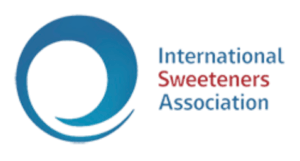Abstract
This opinion deals with the re-evaluation of saccharin and its sodium, potassium and calcium salts (E 954) as food additives. Saccharin is the chemically manufactured compound 1,2-benzisothiazol-3(2H)-one-1,1-dioxide. Along with its sodium (Na), potassium (K) and calcium (Ca) salts, they are authorised as sweeteners (E 954). E 954 can be produced by two manufacturing methods i.e. Remsen-Fahlberg and Maumee. No analytical data on potential impurities were provided for products manufactured with the Maumee process; therefore, the Panel could only evaluate saccharins (E 954) manufactured with the Remsen-Fahlberg process. The Panel concluded that the newly available studies do not raise a concern for genotoxicity of E 954 and the saccharins impurities associated with the Remsen-Fahlberg manufacturing process. For the potential impurities associated with the Maumee process, a concern for genotoxicity was identified. The data set evaluated consisted of animals and human studies. The Panel considered appropriate to set a numerical acceptable daily intake (ADI) and considered the decrease in body weight in animal studies as the relevant endpoint for the derivation of a reference point. An ADI of 9 mg/kg body weight (bw) per day, expressed as free imide, was derived for saccharins (E 954). This ADI replaces the ADI of 5 mg /kg bw per day (expressed as sodium saccharin, corresponding to 3.8 mg /kg bw per day saccharin as free imide) established by the Scientific Committee on Food. The Panel considered the refined brand-loyal exposure assessment scenario the most appropriate exposure scenario for the risk assessment. The Panel noted that the P95 exposure estimates for chronic exposure to saccharins (E 954) were below the ADI. The Panel recommended the European Commission to consider the revision of the EU specifications of saccharin and its sodium, potassium and calcium salts (E 954).
Summary
As part of the re-evaluation programme of all food additives permitted for use in the European Union before January 2009, the European Commission asked the European Food Safety Authority (EFSA) to re-assess the safety of the low/no calorie sweetener saccharin.
After reviewing all available data, EFSA’s scientific experts reconfirmed the safety of saccharin and its sodium, potassium and calcium salts for use in food and beverages. They also established an acceptable daily intake (ADI) that is safe for all population groups at 9 mg/kg body weight per day, increasing the previous one set in 1995.
These results are in line with other evaluations from international regulatory authorities which confirmed saccharin’s safety, such as the one from the Joint Food and Agriculture Organization/World Health Organization Expert Committee on Food Additives (JECFA).


